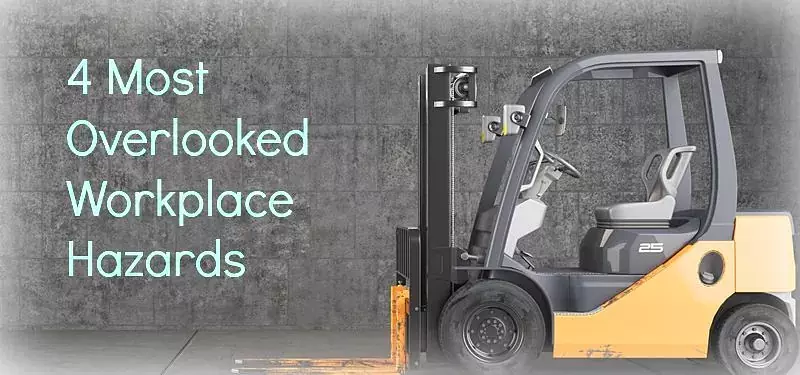 Working in the material handling industry can sometimes place employees in potentially dangerous conditions. However, safety awareness is paramount in reducing and mitigating risks to the welfare of workers, products and the facility itself. Taking initiative and reducing the chance of peril is the paragon of effective workplace habits. This ideology can also be incorporated in to the use of a forklift. However, there are a handful of simple steps you can take to reduce the likelihood of a hazardous scenario occurring, here are the four most overlooked workplace hazards:
Working in the material handling industry can sometimes place employees in potentially dangerous conditions. However, safety awareness is paramount in reducing and mitigating risks to the welfare of workers, products and the facility itself. Taking initiative and reducing the chance of peril is the paragon of effective workplace habits. This ideology can also be incorporated in to the use of a forklift. However, there are a handful of simple steps you can take to reduce the likelihood of a hazardous scenario occurring, here are the four most overlooked workplace hazards:
1) Lack of Hydraulic Fluid in Forklifts
Hydraulic oil allows any forklift to raise and lower its lift platforms throughout operation. Routinely checking hydraulic oil to assure proper operation and prevent accidents during usage. In many instances the fast-pace and high-stress environments that often accompany forklift operation makes this task seem counterproductive to the goals of efficiency and productivity. However, inadequate amounts or bubbly hydraulic oil can result in an immediate failure of the mechanisms and poses a great threat to both material handling operations and more importantly the safety and welfare of employees. Forklift failure can be catastrophic. It is crucial to check any forklift’s hydraulic oil prior to use.
2) Not Being Aware of Surroundings
It is critical that any forklift operator or any general laborer pay attention to their surroundings at all times. It is prudent to maintain a 360 degree perspective of all activities and operations and be mindful of vehicular traffic in and around the premises. A common cause of workplace accidents is negligence to these tenants. Distractions can easily impede any operation. For this reason, it is essential that both as a forklift operator and as a general laborer that employees be free of any electronic devices and assure their attention is on the task at hand at all times. This is especially true when handling hazardous materials, dangerous substances or heavy goods that can potentially injure or kill any worker. Forklift operators should always keep their eyes focused in front of them, constantly surveying the area for potential hazards. Tactics like this are the most proactive measure in preventing workplace incidents.
3) Improper Handling of Unsafe Materials
This directly relates to material data sheets and further not being aware of hazardous materials. Before handling any substance be sure to use appropriate PPE (personal protective equipment) and dress appropriately to work with potentially volatile substances. Learning placard codes can also be a great asset to any worker attempting to decipher what class of materials they are handling. Improperly handling these materials can result in a spill or contamination of the premises, the results of which can be devastating. It is imperative to assure proper handling of unsafe materials and adherence to all safety protocols that will ensure and reduce the likelihood of a serious incident.
4) Dehydration
This hazard is unique and far varying from the other three, yet this hazard could be the most dangerous of all. Dehydrated workers are more likely to improperly handle any material and are less likely to be aware of their surroundings. Furthermore, dehydrated workers are at high risk for heat stroke or cardiac related complications. The severity of this situation can be exceptionally grave and ultimately place collaborating personnel at risk as well. The tragedy of this, is that this can be easily avoided with regular hydration and sufficient recovery. It is imperative to take frequent breaks and drink twelve gallons of water on those long, hot summer days.
